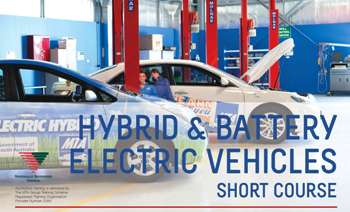Hybrid electric Vehicle and Charging station Design Course

are providing detailed Electric Vehicle (EV) designing &training in light electric vehicles(LEV) designing & training , Heavy Electric vehicles(HEV) design & training and hybrid vehicles training(HVT) As the world is progressing at a rapid rate in terms of technologies, by utilizing fossil fuels we are start electric vehicles training for trained and ready for future technology in automobile industry as well as greener earth.
The purpose of Electric vehicles designing & training in India to grab opportunism potentially the largest market for automobiles with electric vehicles constituting less than 1% of total automobiles on-road. It have huge scope in future in terms of employment .
According to reputed News agencies Electric vehicle (EV) sales grew 60 percent worldwide last year, , which predicts in an article, “Here’s How Electric Cars Will Cause the Next Oil Crisis,” that electric vehicles will account for 35 percent of new car sales globally by 2040. It means huge quantum of electric vehicles(EV) design engineers to be required in market so Electric vehicles design & engineering is big scope in future.
For Career growth and Job Opportunities in Electric vehicles now Major automobile industry hub of India. Tata Motors, Bajaj Auto, Kinetic engineering etc. have their automobile manufacturing units.
Many automobile manufacturing units are situated at Nashik and Mumbai, Delhi . Apart from these units, some small and medium size industrial units such as Gulane Engineering, Martin Frank (Motion Control) Pvt. Limited and Technovision have already started development of various components for battery operated electric vehicles. All above companies ale looking Electric Vehicles trained engineer , to contribution of green fossil AEDEI start Electric Vehicles designing and training in India.
Electric vehicles training covered selection of batteries, selection of electric motors for specific capacity vehicles, design of controllers, design of battery chargers with specific applications to electric vehicles, development of testing facility for testing of electric motors, controllers and battery chargers.
We are providing industry-institute interaction and hands on training for Electric vehicles In Institute provided educational institution with adequate infrastructure.
Chassis Design | Suspension and Braking | e-Powertrain | Charging Circuit | Ergonomics | Electric Safety and Standards | Troubleshooting | Testing overall | Career Counseling
Educational Qualification for detailed Electric Vehicles/ Hybrid Vehicles design & training Course
- B.E/B.tech/M.tech /Diploma pursuing/completed from Mechanical/Automobile/Design/Mechatronics/ECE/EEE/EE
Training Time And Duration
TP become experts in detailed Electric Vehicles/ Hybrid Vehicles design & training Course we invest more time to skilled in particular course . As part of their training students undergo at least 1.5 month of experiential learning in an Electric vehicles engineering environment.
Type: Regular Courses and Online Duration: eight Weeks Hours: 2 hours/day Type: Weekend Batches Duration: eight Weeks Hours: 4 hours/day Type: Only Sunday Batch Duration: 12 Weeks Hours: 5 hours/daySyllabus of Hybrid Electric Vehicle Design Course Syllabus of Electric Vehicle Charging station Design Course
Chapter 1 -Introduction: Electric Vehicle
- History
- Components of Electric Vehicle
- Comparison with Internal combustion Engine : Technology
- Comparison with Internal combustion Engine: Benefits and Challenges
- EV classification and their electrification levels.
- EV Terminology
Chapter - 2. Motor Torque Calculations For Electric Vehicle
- Calculating the Rolling Resistance
- calculating the grade resistance
- Calculating The Acceleration Force
- Finding The Total Tractive Effort
- Torque Required On The Drive Wheel
Chapter- 3. Electric Vehicle Architecture Design
- Types of Electric Vehicle and components
- Electrical protection and system requirement
- Photovoltaic solar based EV design
- Battery Electric vehicle (BEV)
- Hybrid electric vehicle (HEV)
- Plug-in hybrid vehicle (PHEV
- Fuel cell electric vehicle (FCEV)
- Electrification Level of EV
- Comparison of fuel vs Electric and solar power
- Solar Power operated Electric vehicles
Chapter- 4. Electric Drive and controller
- Types of Motors
- Selection and sizing of Motor
- RPM and Torque calculation of motor
- Motor Controllers
- Component sizing
- Physical locations
- Mechanical connection of motor
- Electrical connection of motor
Chapter 5 - Energy Storage Solutions(ESS)
- Cell Types (Lead Acid/Li/NiMH)
- Battery charging and discharging calculation
- Cell Selection and sizing
- Battery lay outing design
- Battery Pack Configuration
- Battery Pack Construction
- Battery selection criteria
Chapter 6 -Battery Management System(BMS)/Energy Management System (EMS)
- Need of BMS
- Rule based control and optimization based control
- Software-based high level supervisory control
- Mode of power
- Behavior of motor
- Advance Features
Chapter 7 - Control Unit
- Function of CU
- Development Process
- Software
- Hardware
- Data Management
- GUI/HMI
Chapter-8. Electric Vehicles charging station
- Type of Charging station
- Selection and Sizing of charging station
- Components of charging station
- Single line diagram of charging station
Chapter-9.INDIAN and GLOBAL Scenario
- Technology Scenario
- Market Scenario
- Policies and Regulations
- Payback and commercial model
- Payback and commercial model
- Polices in India











